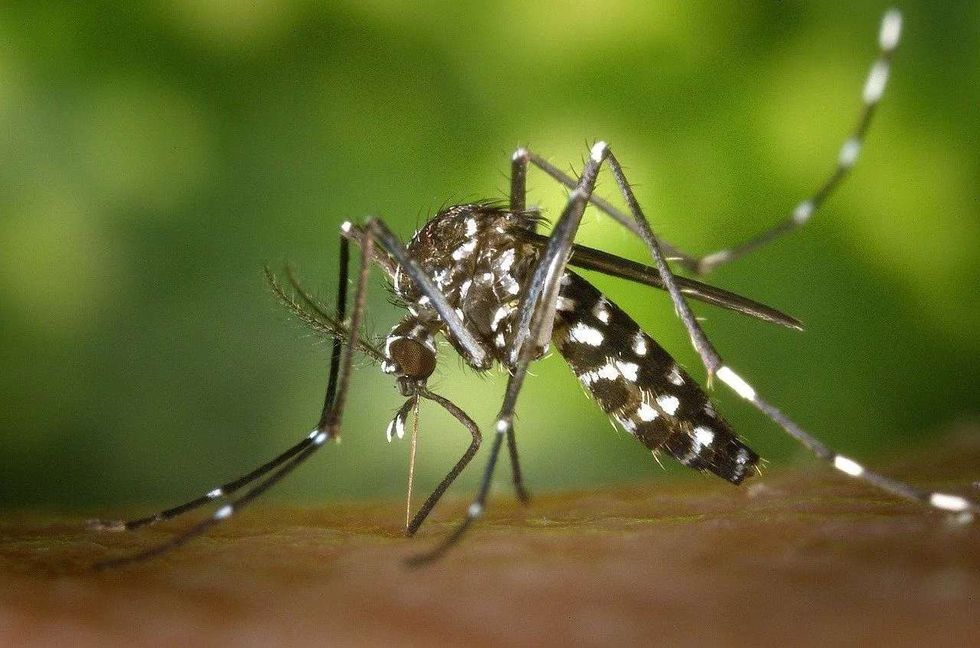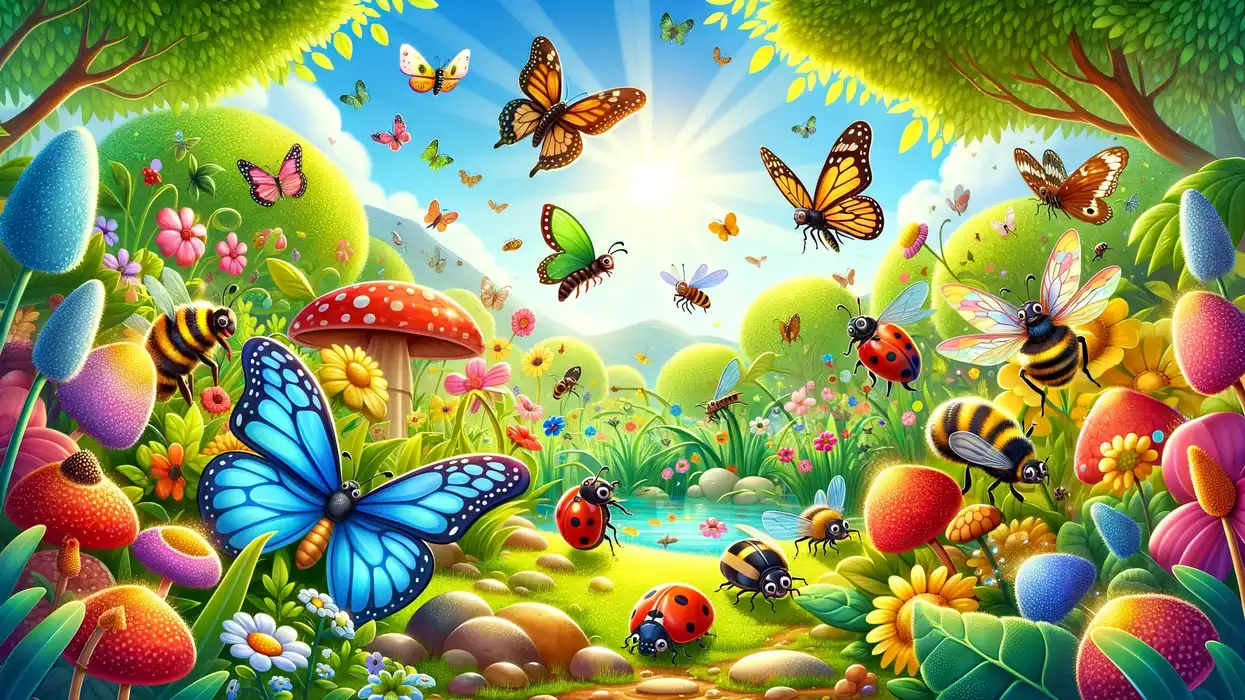The mosquito belongs to the Culex genus and have an exoskeleton skin type. They can follow the scent of other mosquitoes and leave their own scent for the other mosquitoes to follow.
The reproduction of the mosquito happens in four stages starting with eggs, then the larval stage followed by the pupal stage, and finally the adult mosquitoes are born. Mosquito-borne fatal diseases such as the west Nile virus, malaria, encephalitis, etc are transmitted by the mosquito bite.
A mosquito magnet is a new technology developed to attract, kill and give us protection from mosquitoes and a mosquito free environment. Treatment of mosquito bites can be done with anti-itch ointments, antihistamines.
Read on for some of the most interesting facts about these disease spreading insects. For more relatable content, check out these flesh fly facts and mayfly facts for kids.
Mosquito Interesting Facts
What type of animal is a mosquito?
A mosquito is a small sized insect whose wings buzz when it flies. They are pests who transmit diseases like malaria. Humans need protection from the itchy bites of these insects from family Culicidae.
What class of animal does a mosquito belong to?
A mosquito belongs to the insect class of animals. They are species of the Culex genus and Culicidae family that primarily feed on human and animal blood.
How many mosquitoes are there in the world?
There is no possible way to have a count of the number of mosquitoes present in the world as there are over 3000 species spread across the world. These disease spreading insects from family Culicidae can be found in almost all countries of the world.
Where does a mosquito live?
A mosquito lives in wetlands. They also live in houses but humans try to have a mosquito free house to stay clear of the diseases that a mosquito bite can transmit.
What is a mosquito's habitat?
A mosquito habitat consists of water bodies, small and big. They are found in and near ponds, swamps, marshes, gutters, stagnant waters and other wetlands. They prefer to live in a humid environment which is very effective for their growth. They also live in people's houses where they breed on standing water.
Who do mosquitoes live with?
Mosquitoes of the Culex genus live with species of their own. They are found in small and large swarms.
How long do mosquitoes live?
Mosquitoes have an average lifespan of 2-3 weeks.
How do they reproduce?
Male mosquito and female mosquito reach sexual maturity at the age of 28 hours. The female mosquitoes can lay eggs for their lifetime after they have once mated. The females lay eggs on standing water.
The mosquito eggs hatch in 24-72 hours. The hatched mosquito larvae then take 7-10 days to reach the pupal stage which is for 1-3 days. After that, a fully grown adult mosquito is produced.
What is their conservation status?
The conservation status of mosquitoes is of Least Concern as in fact humans are always trying to get rid of these insects.
Mosquito Fun Facts
What do mosquitoes look like?
Mosquitoes have a black colored body. The body of a mosquito is very slender. They have two transparent wings on their body which make a loud buzz when they fly.
Their legs are very long and are bent in the middle. They have two antennas on their head. They have an external nose, which is a long proboscis which they use for eating.
How cute are they?
Mosquitoes of the Culex genus are not at all cute. They are ugly looking insects that are harmful to human health as they spread malaria.
How do they communicate?
Mosquitoes are dependent on the scent secreted by their species for communication. They also listen for wing movements which lead them to their pack. They are sensitive to moisture, heat, carbon dioxide, and the breath of their prey. They can find humans by the carbon dioxide emission.
How big is a mosquito?
Even the big mosquitoes are very small insects. Usually, their length lies between 0.15-0.4 in (3.8-10.2 mm). Velvet ants are two times bigger than them.
How fast can mosquitoes fly?
Mosquitoes can fly at speeds between the range of 0.9-1.5 mph (1.5-2.4 kph). They are very fast moving species and make a buzzing sound while flying. They are faster than a panda ant.
How much do mosquitoes weigh?
Mosquitoes are very light in weight. A big mosquito weighs between the range of 0.0001-0.0003 oz (2.8-8.5 mg). They are smaller than leafcutter ant and in range of black carpenter ant.
What are the male and female names of the species?
No specific names are assigned to the males and females of the mosquito species. They are known as males and females only.
What would you call a baby mosquito?
A baby mosquito is called a wriggler.
What do they eat?
Mosquitoes diet includes blood, microorganisms such as algae, bacteria. Not all mosquito species feed on blood. Only females of the species need a blood meal to produce eggs. They also feed on nectar from flowers.
Are they dangerous?
The mosquito bites humans. They carry mosquito borne diseases such as dengue, malaria, elephantiasis, yellow fever, west Nile virus, encephalitis. That is why they are very dangerous for human health and animals alike. It is necessary to do mosquito control in time.
Would they make a good pet?
Mosquitoes are considered pests by humans. They are harmful to human health and are hosts to various viruses and bacteria and spread diseases like malaria. Hence, they do not make a good pet. Humans like a mosquito free environment and use mosquito net or mosquito repellent to get rid of them.
Did you know...
Treatment of a mosquito bite is rarely needed. The treatment, if needed, can be done by using over the counter medications.
Mosquitoes do not die after biting. Well, they will die if you squish them when you feel a bite, but there is no biological reason for them to die after a bite. Moreover, they do not lay eggs when they bite humans.
Mosquitoes tend to be attracted to people with blood type O as compared to other blood types.
There is reason as to why only female mosquitoes drink blood. The reason is that drinking blood allows them to nourish their child-bearing bodies.
When a mosquito bites a human, it injects saliva under the skin during the process of feeding. When the body reacts to this saliva, it results in a bump and itching.
What is the best mosquito repellent?
The best mosquito repellent body spray in the world is the Sawyer Premium Insect Repellent body spray. Spray effects last for up to 12 hours. The 20 percent picaridin formula in this mosquito spray acts very effectively as mosquito control.
How to prevent mosquito bites?
Mosquito bites can be very itchy and they spread mosquito borne diseases. A few things can be done for mosquito control.
The use of mosquito cage and nets on windows and beds is the best mosquito trap. Not letting water stand for very long since stagnant water is their breeding grounds, not wearing black colored clothes, using mosquito repellent, planting mosquito repellent plants, etc. can be done to prevent mosquito bites.
Here at Kidadl, we have carefully created lots of interesting family-friendly animal facts for everyone to discover! For more relatable content, check out these potter wasp facts and bald-faced hornet facts pages.
You can even occupy yourself at home by coloring in one of our mosquito coloring pages.









